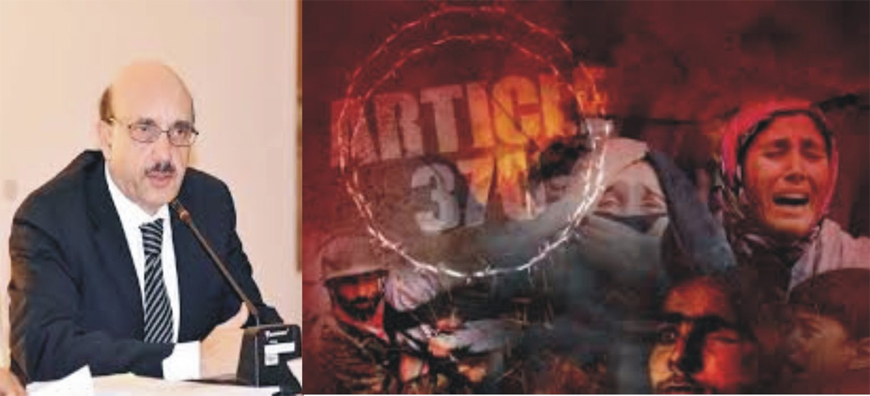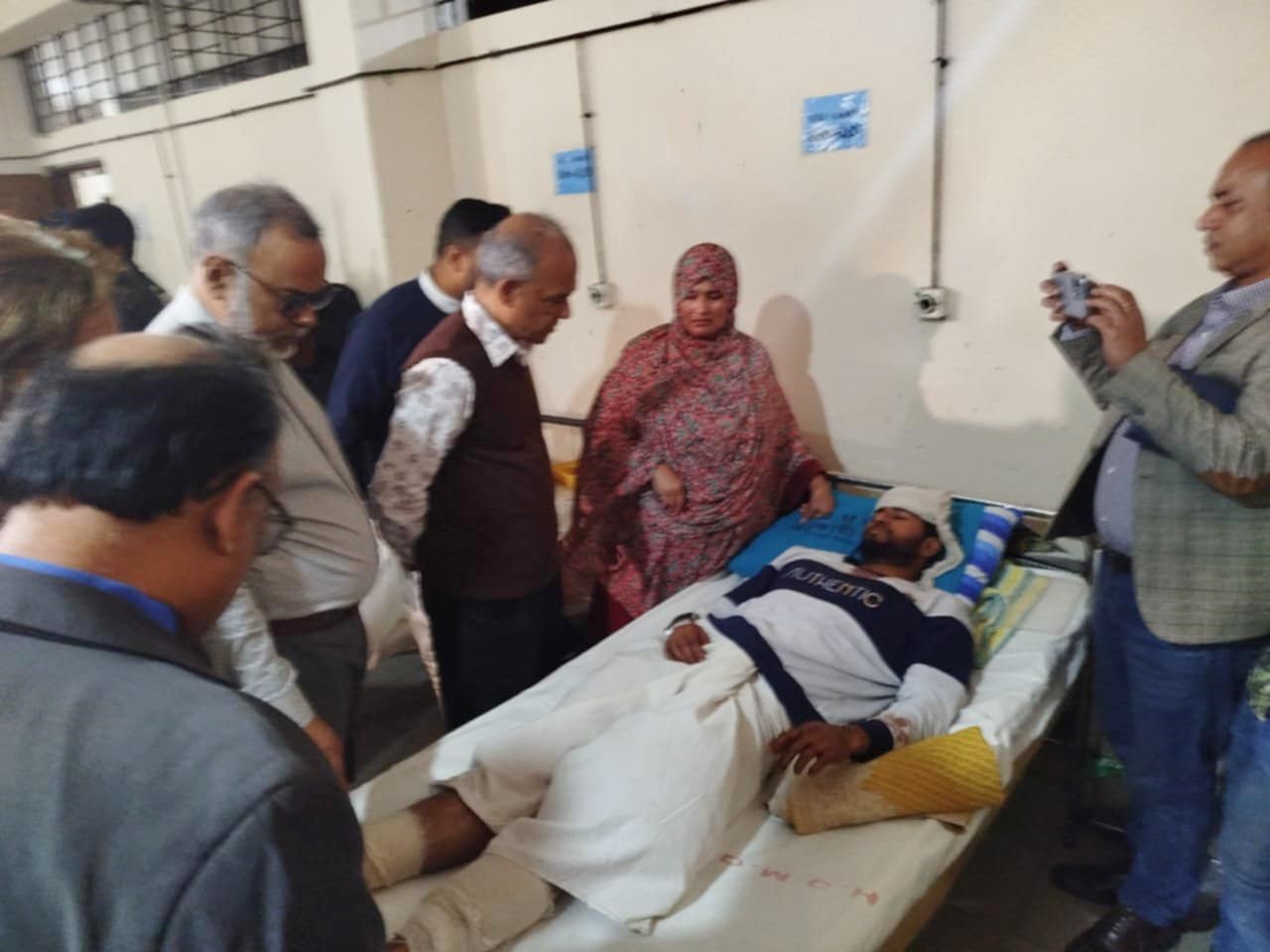
Online Desk: Former President of Azad Jammu and Kashmir Masood Khan has said that India’s revocation of Article 370 and subsequent demographic changes in India-held Kashmir are part of a broader Indian strategy aimed at marginalising and disenfranchising minorities while advancing its hegemonic agenda.
According to Kashmir Media Service, the former president was speaking at a roundtable discussion organized by the Center for International Strategic Studies (CISS), Islamabad, titled ‘Revisiting the Kashmir Conflict Under the Changing Indian Polity’.
Khan, who is also a former diplomat having served as ambassador in Beijing and Washington and the representative at the United Nations, argued that the Hindutva agenda extends beyond Kashmir, with India aiming for the ‘saffronization’ of the entire subcontinent.
He cited the example of the Akhand Bharat Map installed in the Indian Parliament in 2023 as evidence of India’s expansionist ambitions. Stressing the importance of maintaining strategic deterrence, he urged Pakistan to resist external pressures.
He also emphasised that despite political divisions, certain national security red lines must remain inviolable.
Speaking at the event, Dr Mohammad Mujeeb Afzal, associate professor at Quaid-i-Azam University, challenged India’s secular identity, arguing that its post-1947 governance structures have selectively applied secularism while systematically marginalizing minorities.
Afzal said Muslims in India face institutional discrimination in politics, employment, and public life, reinforcing deep-seated biases. Communal violence and religious polarisation, he added, have been used as political tools to secure electoral victories.
He noted that Hindu nationalism has evolved from a legal-political movement into a cultural force that pressures minorities to conform to dominant Hindu narratives, from dress codes to religious expression.
Afzal further highlighted key legislative measures, including the Citizenship Amendment Act and the abrogation of Article 370, as part of a broader effort to reshape Indian democracy along communal lines.
These policies, he said, have deepened the exclusion of Muslims and restricted their political participation. India’s demographic and political re-engineering, he argued, reflect a larger civilizational clash between Hindu revivalism and the region’s historical Muslim identity.
Mir compared India’s actions in Occupied Kashmir to Israel’s policies, stating that India is implementing demographic changes in direct violation of UN resolutions. To keep the Kashmir issue at the forefront of global discourse, he suggested, Pakistan enhance diplomatic advocacy, increase engagement with international organisations, initiate legal actions at regional and global forums, build alliances with like-minded nations, highlight human rights violations, and involve the Kashmiri diaspora.
Concluding the discussion, Ambassador Ali Sarwar Naqvi, executive director of CISS, asserted that occupying states like India and Israel will not willingly engage in negotiations. He stressed that international pressure is necessary to bring them to the table.
“Kashmir is not an internal matter of India,” he said. “It is an internationally recognised dispute, and Pakistan will continue to stand with the Kashmiri people in their struggle for freedom.”
Naqvi recalled Pakistan’s commitment to providing diplomatic, political, and moral support to Kashmiris and called on the international community to take concrete action rather than issue statements.






